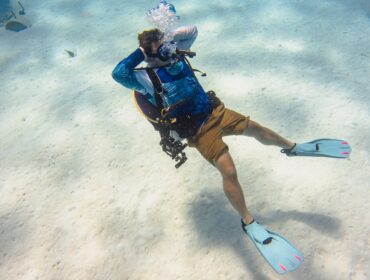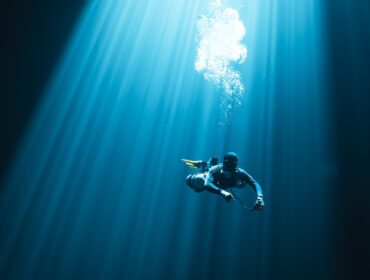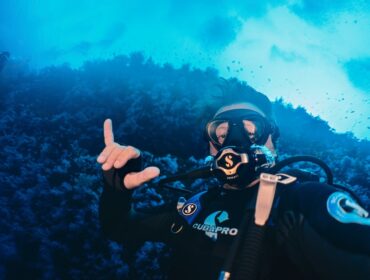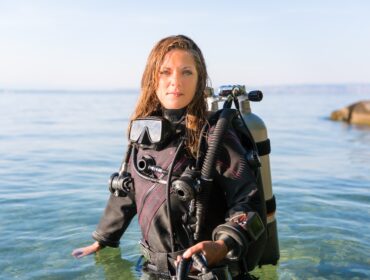We find it humorous when divers in full gear complain about rain since they are planning on getting wet, but do they have a point? Is there some level of inclement weather when we should avoid diving? Or are they just complaining? Let’s take a look at some forms of inclement weather and their impact on SCUBA diving.
Rain
Considering this is a La Nina year, many parts of the globe are experiencing wetter than usual weather patterns. While rain may only hurt you if you’re a witch, it can still have an impact on your diving conditions.
Due to increased water volume in rivers, streams and tributaries, there is frequently an increase in erosion. Where does that sediment go? Downstream to lakes and the ocean. Regardless of if your favorite dive site is near a body of moving water, even the small amounts of soil that get washed into the water from a downpour can have an impact on visibility.
In parts of the world where there are official monsoon seasons, some dive operations severely minimize SCUBA diving activities due to decreased visibility. In other parts of the world where 10 feet of visibility is considered excellent, the reduced visibility from rain induced sediment is unlikely to postpone diving.
Snow/Hail
Similar to rain, snow and hail may affect visibility, but will otherwise have little impact. If you dive in an area that has snow or hail, you will probably want a thicker wetsuit or drysuit to protect yourself from the colder water temperatures. Some divers also carry survival blankets to help stay warm between dives. There are even specially designed hand warmers that you can activate and place inside your suit for extra warmth. We recommend testing this before getting fully suited up because some people have extra sensitivity to heat against their skin.
Lightning
While the risk of lightning striking water is low because surface water doesn’t typically heat up enough to cause the positive charge needed for lightning to strike, this is one form of inclement weather to avoid. Regardless of the debate of lightning actually being felt by a diver while underwater, most SCUBA equipment has metal on it, which is a prime conductor when out of the water. If you’re doing a shore entry or riding a boat, you will be exposed to the water in an area that has far less to conduct an electric charge than you and your gear.
Bottom line: avoid diving when lightning may occur.
As always, use your best judgement, carefully evaluate your diving conditions, and always feel comfortable calling a dive.




